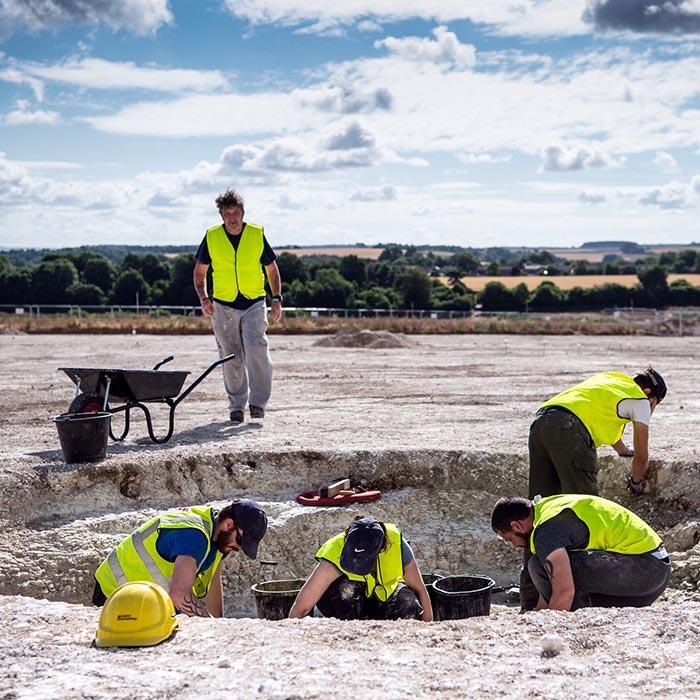
New guidelines co-produced by a University of Winchester academic will be helping to keep participants safe at next month’s Festival of Archaeology (15-30 July).
Dr Paul Everill, Reader in Archaeology, teamed up with Dr Karen Burnell, Associate Professor of Applied Psychology from Solent University, to produce AMPHORA – a series of toolkits for project providers, social prescribers, and participants – in response to the growing numbers of people taking part in digs and heritage projects as a way to improve mental health.
The AMPHORA (Authentic and Meaningful Participation in Heritage Or Related Activities) guidelines are designed to unlock the full therapeutic potential of the historic environment.
AMPHORA was launched last October to coincide with World Mental Health Day and Paul and Karen have since worked with colleagues at the Council for British Archaeology (CBA) to provide an adapted version to support the annual festival.
“The Festival of Archaeology includes a huge number of events reaching hundreds of thousands of public participants so this is a wonderful opportunity for academic research to have a public benefit,” said Paul.
Paul added: "Archaeological excavation, in particular, is built around teamwork, and it seems that this is a key ingredient in developing support networks alongside the satisfaction derived from undertaking meaningful work on interesting sites. Colleagues across the discipline continue to work really hard to widen opportunities for engagement, but we also need to work with experts in mental health to ensure that therapeutic projects are fully supported.
“The AMPHORA logo can hopefully become a form of quality assurance to demonstrate that all these things are in place."
Archaeology has been used as a therapeutic intervention for veterans since Operation Nightingale was established by the Ministry of Defence in 2011.
Paul and Karen’s work with veteran-focused initiatives, including Operation Nightingale and Breaking Ground Heritage, led to a large-scale study of the psychological effects on veterans taking part in digs. Participants reported decreases in depression and anxiety and feelings of isolation and an increase in self-worth and wellbeing.
The findings were published in 2020’s Dig in: An Evaluation of Archaeological Fieldwork for the Improved Wellbeing of Military Veterans by Paul, Karen and Richard Bennett from Breaking Ground Heritage.
Since 2016 the University of Winchester has offered a fee-waiver for wounded, injured or sick veterans studying for a degree in archaeology.
The research underpinning the AMPHORA guidelines was stakeholder driven, including those with lived experience of mental health issues, policy makers, academics, and heritage and mental health professionals.
The AMPHORA toolkits based on those guidelines were produced with Higher Education Innovation Funding and is endorsed by the Chartered Institute for Archaeologists - the professional organisation for UK archaeologists - British Archaeological Jobs and Resources (BAJR), the Enabled Archaeology Foundation, Historic England, Hampshire Cultural Trust, Archaeology Scotland, the Restoration Trust, Wessex Archaeology, Museum of London Archaeology, the York Archaeological Trust and The National Academy for Social Prescribing (NASP).
The theme of this year’s Festival of Archaeology is Archaeology and Creativity. To find out more about events visit Festival Headline Events 2023 Council for British Archaeology (archaeologyuk.org)
Pictured above: Veteran studentship holders from the University of Winchester excavating a Hessian Mercenary dugout in a collaboration between Pre-Construct Archaeology and Operation Nightingale at Barton Farm, Winchester, 2018. Photography by Harvey Mills ARPS
Back to media centre